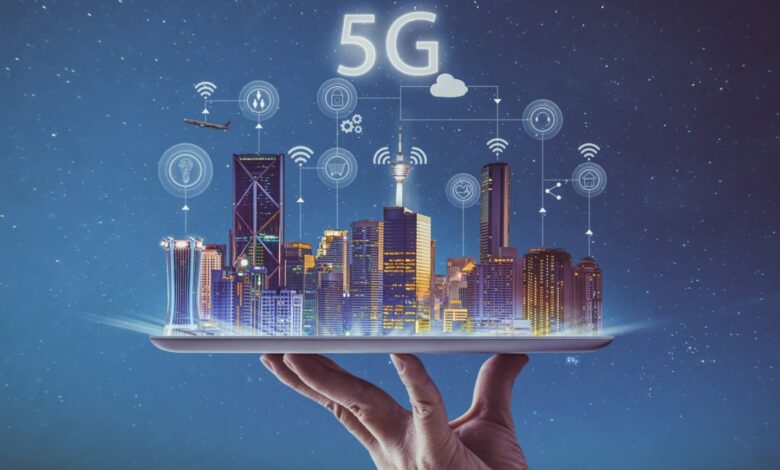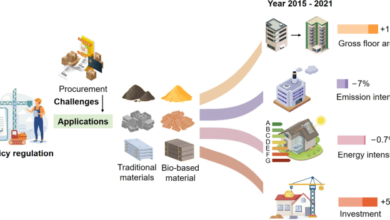The Future of the Internet: A Glimpse into Tomorrow’s Digital World

The internet, often referred to as the “information superhighway,” has revolutionized the way we communicate, learn, and conduct business. From its humble beginnings as a network of computers exchanging simple text files to its current form as a vast, global network of interconnected systems, the internet has come a long way. However, the evolution of the internet is far from over. As we look to the future, several emerging technologies and trends are set to reshape the internet in ways that will impact society, businesses, and individuals. This article explores some of the key developments that will define the future of the internet.
The Rise of Web 3.0
One of the most significant transformations expected in the coming years is the shift from Web 2.0 to Web 3.0. Web 2.0, which has been the dominant framework for the internet since the early 2000s, is characterized by user-generated content, social media, and centralized platforms like Facebook, Google, and Amazon. Web 3.0, on the other hand, represents a decentralized vision for the internet, where users have more control over their data and digital interactions.
At the heart of Web 3.0 is blockchain technology, which enables secure, transparent, and decentralized networks. With Web 3.0, users can own and monetize their data without relying on intermediaries. Cryptocurrencies, decentralized finance (DeFi), and non-fungible tokens (NFTs) are all part of this new wave of the internet. The decentralized nature of Web 3.0 could lead to a more equitable digital economy, where users benefit directly from their online activities rather than tech giants.
Artificial Intelligence and Machine Learning
Artificial intelligence (AI) and machine learning (ML) are already playing a crucial role in shaping the future of the internet. From personalized recommendations on streaming platforms to advanced search algorithms on Google, AI is enhancing user experiences and making the internet smarter. However, the potential of AI in the future of the internet goes far beyond these applications.
In the next decade, AI is expected to become even more integrated into the fabric of the internet. Autonomous systems will handle tasks that previously required human intervention, such as content moderation, cybersecurity, and customer support. Additionally, AI-powered chatbots and virtual assistants will become more sophisticated, offering real-time, personalized assistance to users. As AI continues to evolve, the internet will become more intuitive, providing users with tailored content and services based on their preferences and behavior.
The Internet of Things (IoT)
The Internet of Things (IoT) refers to the network of interconnected devices that communicate with each other over the internet. From smart home appliances to wearable technology, IoT devices are becoming increasingly prevalent in our daily lives. In the future, the internet will be defined by billions of these connected devices, creating a seamless, integrated digital ecosystem.
IoT will enable greater automation and efficiency in various sectors, including healthcare, transportation, and manufacturing. For example, smart cities powered by IoT could optimize energy consumption, reduce traffic congestion, and improve public safety. In healthcare, IoT devices such as wearable fitness trackers and remote monitoring tools will enable more personalized and preventive care.
However, the widespread adoption of IoT also raises concerns about data privacy and security. With more devices collecting and transmitting data, the risk of cyberattacks and breaches increases. As the future of the internet unfolds, finding ways to secure IoT networks and protect user data will be critical.
5G and Beyond: Faster, More Reliable Internet
The deployment of 5G networks is set to revolutionize the way we access and use the internet. With its lightning-fast speeds, low latency, and increased capacity, 5G will unlock new possibilities for internet connectivity. This next-generation network will enable the seamless integration of IoT devices, support advanced AI applications, and enhance virtual and augmented reality experiences.
Beyond 5G, research is already underway for the development of 6G networks, which could offer even faster speeds and more robust connectivity. The future of the internet will likely be characterized by ubiquitous, high-speed internet access, enabling real-time communication and collaboration on a global scale. As internet infrastructure improves, previously unimaginable applications, such as remote surgeries or fully immersive virtual worlds, will become a reality.
Augmented Reality (AR) and Virtual Reality (VR)
Augmented reality (AR) and virtual reality (VR) are poised to play a significant role in the future of the internet. While these technologies are still in their early stages, they have the potential to transform how we interact with the digital world.
AR overlays digital information onto the physical world, enhancing the user’s perception of their surroundings. This technology is already being used in industries like retail, where customers can try on virtual clothes or visualize furniture in their homes. In the future, AR could become an integral part of everyday life, providing real-time information and guidance in various contexts, from navigation to education.
On the other hand, VR immerses users in entirely digital environments, creating a sense of presence and interaction. The rise of VR could lead to the development of virtual spaces where people work, socialize, and entertain themselves. Virtual meetings, conferences, and even entire virtual cities could become commonplace in the future internet landscape.
The convergence of AR, VR, and the internet will give rise to what some call the “metaverse” — a fully immersive digital world where people can live out their digital lives.
The Future of Cybersecurity
As the internet continues to evolve and expand, cybersecurity will become more important than ever. With the increasing interconnectedness of devices, systems, and networks, the risk of cyber threats will grow exponentially. Protecting personal data, securing IoT devices, and defending against sophisticated cyberattacks will be among the top priorities for individuals, businesses, and governments.
In the future, we can expect to see more advanced cybersecurity solutions powered by AI and machine learning. These technologies will be able to detect and respond to threats in real-time, offering more proactive and effective defense mechanisms. Additionally, blockchain technology may be leveraged to create more secure and transparent online transactions, reducing the risk of fraud and data breaches.
Ethics and Digital Inclusion
As the future of the internet unfolds, ethical considerations will play a crucial role in shaping its development. Issues such as data privacy, digital surveillance, and algorithmic bias will need to be addressed to ensure that the internet remains a tool for good.
Digital inclusion is another important aspect of the future internet. As connectivity becomes increasingly essential for education, employment, and access to information, ensuring that everyone has access to reliable, affordable internet is critical. The future of the internet must be one where all individuals, regardless of their location or socioeconomic status, can benefit from its advancements.
Conclusion:
The future of the internet promises to be one of innovation, connectivity, and transformation. Technologies like Web 3.0, AI, IoT, and 5G will reshape how we interact with the digital world, offering new opportunities and challenges. As we move forward, it will be essential to balance technological progress with ethical considerations, ensuring that the internet of tomorrow is secure, inclusive, and beneficial for all.
The internet has already transformed the world, but its future potential is even more exciting. Whether through decentralized platforms, immersive virtual experiences, or smart cities, the internet will continue to be a driving force for change, innovation, and connectivity in the years to come.
Keep an eye for more news & updates on UsaTechMagazine.Com!





